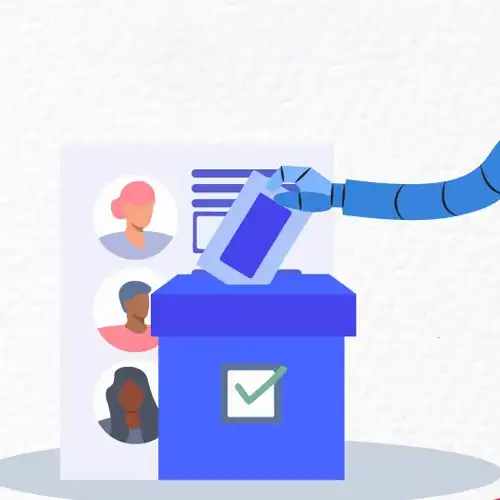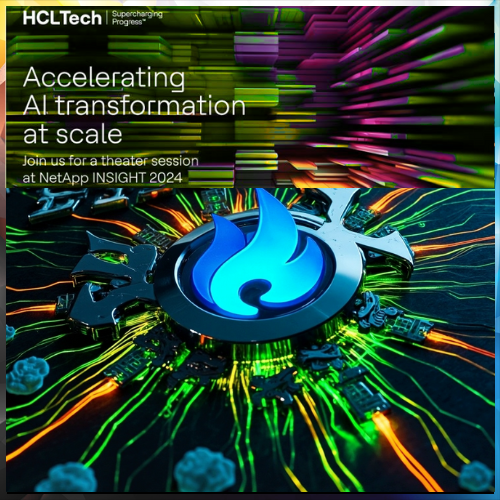
At the Munich Security Conference (MSC), leading technology companies pledged to help prevent deceptive AI content from interfering with this year’s global elections in which more than four billion people in over 40 countries will vote.
The “Tech Accord to Combat Deceptive Use of AI in 2024 Elections” is a set of commitments to deploy technology countering harmful AI-generated content meant to deceive voters. Signatories pledge to work collaboratively on tools to detect and address online distribution of such AI content, drive educational campaigns, and provide transparency, among other concrete steps. It also includes a broad set of principles, including the importance of tracking the origin of deceptive election-related content and the need to raise public awareness about the problem. The accord is one important step to safeguard online communities against harmful AI content, and builds on the individual companies’ ongoing work.
Digital content addressed by the accord consists of AI-generated audio, video, and images that deceptively fake or alter the appearance, voice, or actions of political candidates, election officials, and other key stakeholders in a democratic election, or that provide false information to voters about when, where, and how they can vote.
As of now, the signatories are: Adobe, Amazon, Anthropic, Arm, ElevenLabs, Google, IBM, Inflection AI, LinkedIn, McAfee, Meta, Microsoft, Nota, OpenAI, Snap Inc., Stability AI, TikTok, Trend Micro, Truepic, and X.
Participating companies agreed to eight specific commitments -
● Developing and implementing technology to mitigate risks related to Deceptive AI Election content, including open-source tools where appropriate
● Assessing models in scope of this accord to understand the risks they may present regarding Deceptive AI Election Content
● Seeking to detect the distribution of this content on their platforms
● Seeking to appropriately address this content detected on their platforms
● Fostering cross-industry resilience to deceptive AI election content
● Providing transparency to the public regarding how the company addresses it
● Continuing to engage with a diverse set of global civil society organizations, academics
● Supporting efforts to foster public awareness, media literacy, and all-of-society resilience
These commitments apply where they are relevant for services each company provides.
"Transparency builds trust," said Dana Rao, General Counsel and Chief Trust Officer at Adobe. "That's why we're excited to see this effort to build the infrastructure we need to provide context for the content consumers are seeing online. With elections happening around the world this year, we need to invest in media literacy campaigns to ensure people know they can't trust everything they see and hear online, and that there are tools out there to help them understand what's true."
“This is a pivotal election year for more than 4 billion voters globally and security and trust are essential to the success of elections and campaigns around the world,” said David Zapolsky, Senior Vice President of Global Public Policy and General Counsel at Amazon. “Amazon is committed to upholding democracy and the Munich Accord complements our existing efforts to build and deploy new AI technologies that are reliable, secure, and safe. We believe this accord is an important part of our collective work to advance safeguards against deceptive activity and protect the integrity of elections.”
“Democracy rests on safe and secure elections,” said Kent Walker, President, Global Affairs at Google. “Google has been supporting election integrity for years, and today’s accord reflects an industry-side commitment against AI-generated election misinformation that erodes trust. We can't let digital abuse threaten AI's generational opportunity to improve our economies, create new jobs, and drive progress in health and science.”
“Disinformation campaigns are not new, but in this exceptional year of elections – with more than 4 billion people heading to the polls worldwide – concrete, cooperative measures are needed to protect people and societies from the amplified risks of AI-generated deceptive content,” said Christina Montgomery, Vice President and Chief Privacy & Trust Officer, IBM. “That's why IBM today reaffirmed our commitment to ensuring safe, trustworthy, and ethical AI.”
“With so many major elections taking place this year, it's vital we do what we can to prevent people being deceived by AI-generated content,” said Nick Clegg, President, Global Affairs at Meta. “This work is bigger than any one company and will require a huge effort across industry, government and civil society. Hopefully, this accord can serve as a meaningful step from industry in meeting that challenge.”
“As society embraces the benefits of AI, we have a responsibility to help ensure these tools don’t become weaponized in elections,” said Brad Smith, Vice Chair and President of Microsoft. “AI didn’t create election deception, but we must ensure it doesn’t help deception flourish.”
“We’re committed to protecting the integrity of elections by enforcing policies that prevent abuse and improving transparency around AI-generated content,” said Anna Makanju, Vice President of Global Affairs at OpenAI. “We look forward to working with industry partners, civil society leaders and governments around the world to help safeguard elections from deceptive AI use.”
“Linda Yaccarino, CEO of X said, “In democratic processes around the world, every citizen and company has a responsibility to safeguard free and fair elections, that's why we must understand the risks AI content could have on the process. X is dedicated to playing its part, collaborating with peers to combat AI threats while also protecting free speech and maximizing transparency."
See What’s Next in Tech With the Fast Forward Newsletter
Tweets From @varindiamag
Nothing to see here - yet
When they Tweet, their Tweets will show up here.




























